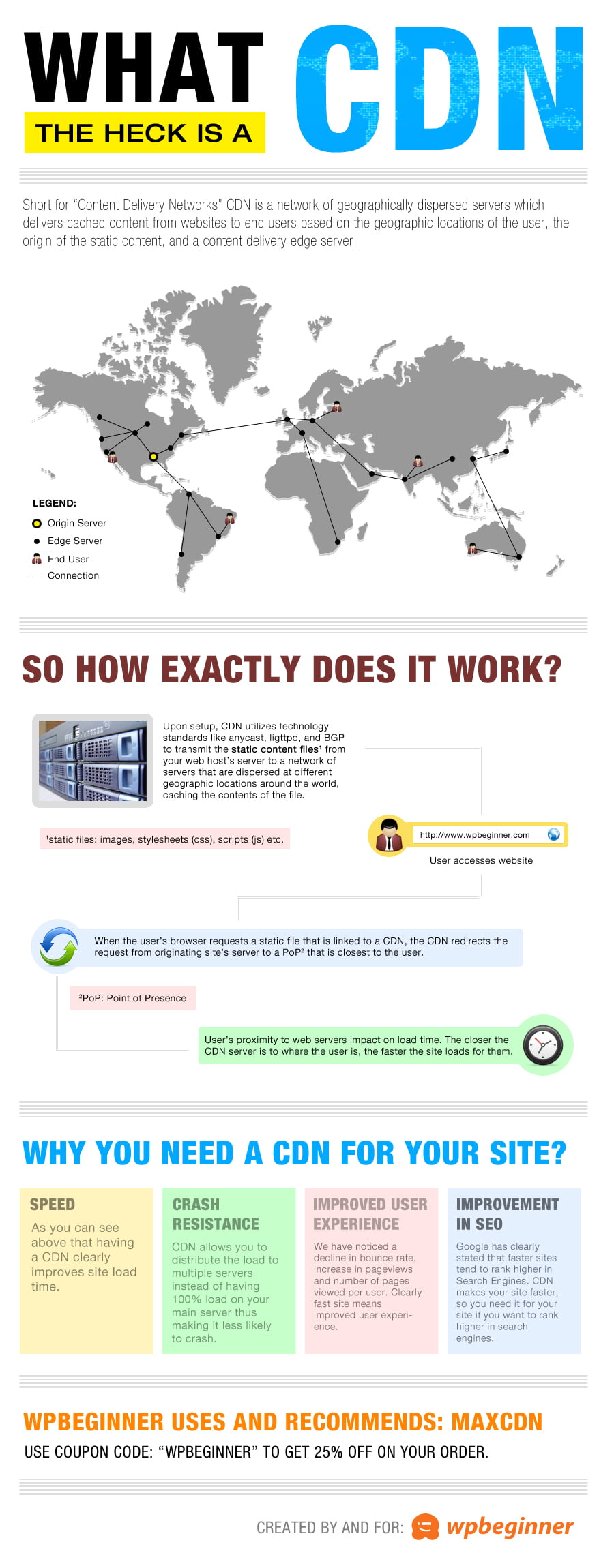The Impact of CDN Technologies on Global E-commerce Platforms

Content Delivery Networks (CDNs) have revolutionized how e-commerce platforms distribute content across the globe, significantly enhancing user experiences and driving growth. Here are the key impacts of CDN technologies on global e-commerce:

1. Reduced Latency and Improved Page Load Speeds:

CDNs store cached content in geographically dispersed servers, reducing the distance between users and the content source. This significantly lowers latency, resulting in faster page load times and improved user satisfaction. Customers can browse and purchase products quickly, reducing cart abandonment and increasing conversion rates.
2. Enhanced Performance during Peak Traffic:
E-commerce platforms often experience surges in traffic during sales or promotions. CDNs distribute content across multiple locations, ensuring that users can access it seamlessly even during peak hours. This prevents website crashes or slowdowns, allowing businesses to capture maximum revenue during crucial periods.
3. Improved Security:
CDNs incorporate security protocols and firewalls to protect against cyber threats. By routing traffic through multiple servers, they minimize the impact of DDoS attacks and other malicious activities. This ensures a secure shopping environment for customers and reduces the risk of data breaches.
4. Optimized Content Delivery for Mobile Devices:
With the rise of mobile shopping, CDNs provide optimized content delivery for mobile devices. They automatically adjust image sizes and video bitrates based on the device’s capabilities, ensuring a smooth and tailored shopping experience.
5. Geographic Expansion and Localization:
CDNs enable e-commerce platforms to expand their reach to global markets by hosting content in local servers. This allows for faster content delivery, reduced latency, and localized content that caters to specific cultural preferences and languages.
6. Cost Savings and Scalability:
CDNs offer cost-effective solutions for e-commerce platforms. By reducing bandwidth usage and optimizing content delivery, CDNs help minimize infrastructure costs. They also provide scalable solutions that can seamlessly handle growing traffic volumes during seasonal spikes.
7. Improved Customer Satisfaction and Loyalty:
Fast and reliable content delivery leads to a better customer experience. When websites load quickly and content is accessible from anywhere, customers are more likely to stay engaged, make purchases, and return for repeat business.
Conclusion:
CDN technologies have become indispensable for global e-commerce platforms. They provide numerous advantages, including reduced latency, improved page load speeds, enhanced performance, increased security, optimized content delivery for mobile devices, geographic expansion, cost savings, and scalability. By leveraging CDNs, e-commerce businesses can deliver a seamless and engaging shopping experience to their customers worldwide, driving growth and success.## [The Impact Of Cdn Technologies On Global E-commerce Platforms]
Executive Summary
Content Delivery Networks (CDNs) have revolutionized the e-commerce landscape, empowering businesses to deliver seamless online experiences to global audiences. By strategically caching and distributing content across a network of servers, CDNs optimize website performance, reduce latency, and ensure fast and reliable delivery of web pages, images, videos, and other multimedia content. This comprehensive analysis unveils the profound impact of CDN technologies on global e-commerce platforms, exploring their benefits, key applications, and best practices for implementation.
Introduction
In today’s interconnected digital world, e-commerce has become an integral part of global business strategies. Consumers expect fast and seamless online experiences, regardless of their geographic location. CDN technologies play a pivotal role in meeting these expectations by accelerating content delivery, improving website performance, and enhancing user satisfaction.
FAQs
1. What is a Content Delivery Network (CDN)?
A CDN is a distributed network of servers strategically located in data centers across the globe. When a user requests content from a website, the CDN delivers that content from the server closest to the user’s location, reducing latency and improving delivery speed.
2. How can CDNs benefit e-commerce platforms?
CDNs offer numerous benefits to e-commerce platforms, including:
- Improved website speed and performance
- Reduced latency and faster content delivery
- Increased reliability and uptime
- Enhanced user experience and satisfaction
- Improved search engine optimization (SEO)
3. How can I implement a CDN on my e-commerce platform?
Implementing a CDN involves several steps:
- Choosing a reputable CDN provider
- Selecting the appropriate CDN plan and pricing tier
- Installing the CDN’s code on your website
- Configuring the CDN settings to optimize performance
Key Applications of CDN Technologies
1. Website Acceleration
CDNs play a crucial role in accelerating website performance by caching and delivering static content, such as HTML, CSS, and JavaScript files, from servers located closer to the user’s location. This significantly reduces page load times, improving the user experience and increasing conversions.
- Improved page load times: CDNs reduce latency by delivering content from nearby servers, resulting in faster website loading.
- Reduced bandwidth consumption: By caching frequently accessed content, CDNs reduce the load on the origin server, saving bandwidth and optimizing performance.
- Enhanced user engagement: Faster website speeds lead to improved user engagement, increased time spent on site, and higher conversion rates.
2. Global Content Delivery
CDNs enable e-commerce platforms to reach global audiences by distributing content across a network of servers located in different geographic regions. This ensures that users from all over the world can access website content with minimal latency and delays, regardless of their location.
- Cross-border e-commerce optimization: CDNs facilitate seamless cross-border e-commerce transactions by delivering content to users in different countries and regions.
- Localization and translation: CDNs support localization and translation of website content, enabling e-commerce platforms to cater to diverse audiences with tailored experiences.
- Reduced bounce rates: Global content delivery minimizes bounce rates by providing users with fast and reliable access to content, enhancing overall user satisfaction.
3. Security and Reliability
CDNs enhance the security and reliability of e-commerce platforms by providing DDoS protection, SSL encryption, and redundant infrastructure. This protects websites from malicious attacks, ensures data integrity, and guarantees uninterrupted service availability.
- DDoS protection: CDNs offer DDoS protection by distributing traffic across multiple servers, mitigating the impact of malicious attacks and maintaining website uptime.
- SSL encryption: CDNs support SSL encryption, safeguarding sensitive user data and ensuring secure online transactions.
- Redundant infrastructure: CDNs maintain redundant infrastructure to ensure high availability and prevent service outages, guaranteeing reliable and consistent content delivery.
4. Multimedia Optimization
CDNs are optimized for delivering multimedia content, such as images, videos, and audio files, with high quality and low latency. They employ specialized caching techniques and adaptive bitrate streaming to ensure smooth and uninterrupted playback.
- Reduced buffering: CDNs minimize buffering and improve the user experience by delivering multimedia content in a continuous and seamless manner.
- Enhanced video quality: CDNs optimize video delivery to ensure high-quality playback, even in areas with limited bandwidth or network congestion.
- Improved image loading: CDNs accelerate image loading speeds, reducing page rendering times and enhancing the overall visual experience.
5. SEO Optimization
CDNs contribute to SEO optimization by improving website speed and performance, which are key ranking factors in search engine algorithms. Faster websites rank higher in search results, increasing visibility and organic traffic.
- Improved page speed: CDNs reduce page load times, which is a crucial metric for SEO ranking and user satisfaction.
- Reduced bounce rates: By providing faster loading speeds, CDNs reduce bounce rates, indicating a positive user experience to search engines.
- Enhanced crawling and indexing: CDNs allow search engine crawlers to access website content more quickly and efficiently, improving website indexing and visibility in search results.
Conclusion
CDN technologies are indispensable for global e-commerce platforms seeking to deliver seamless online experiences to their customers. By optimizing website performance, reducing latency, enhancing security, and enabling global content delivery, CDNs empower businesses to reach global audiences, increase conversions, and drive business growth in the digital era. As e-commerce continues to evolve, CDN technologies will play an increasingly vital role in shaping the future of online commerce, enabling businesses to meet the ever-growing demands of consumers worldwide.
Keyword Tags
- Content Delivery Networks (CDNs)
- E-commerce Platforms
- Website Acceleration
- Global Content Delivery
- SEO Optimization
